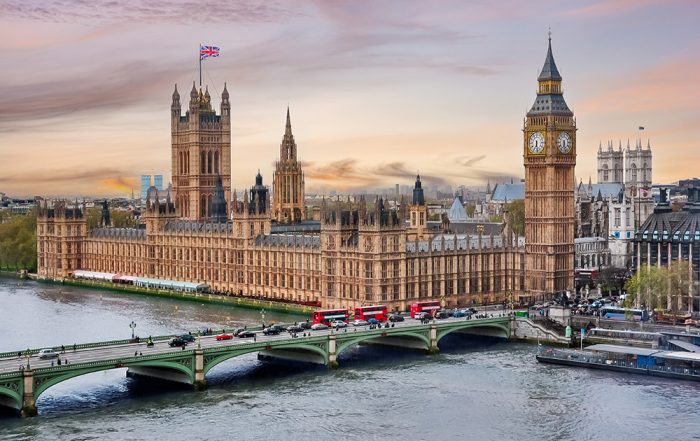Mortgage protection insurance acts as a safety net to cover your monthly repayments if you can no longer afford them. It can prevent you from having to default on your mortgage, and so avoid repossession of your home.
But is this type of protection right for you, or are there better options available?
In this article we’ll cover mortgage protection insurance, compare it to other protection options and how it can support you.

What is mortgage protection insurance?
Mortgage protection insurance is a type of policy that helps to pay your monthly repayments if you can’t work due to illness, a serious injury or redundancy. Sometimes it’s called mortgage payment protection insurance (MPPI).
After you’ve been out of work for a specified period of time, your insurance will pay you a set amount each month. You may be able to get cover for your bills, too, which usually means the provider will pay a portion of your mortgage. However, there is usually an exclusion period that you need to have the policy in place for before you can claim.
Furthermore, you’ll only receive payments for up to 12 months or two years, depending on the policy you have in place. Mortgage protection insurance isn’t the same as PPI, because it covers mortgage repayments, and if you need to claim, the payments come directly to you rather than the lender.
What are the different types of mortgage protection insurance?
There are three main types of mortgage protection insurance, which cover different circumstances:
- Unemployment policies only pay out if you can’t work due to redundancy.
- Accident and sickness policies will cover you if you can’t work because you’ve become seriously ill or had an injury.
- Combined policies also exist that cover for both unemployment and accident/sickness.
Some providers will cover self-employed people, but you may need an adviser to find these more specialist policies. Contact Grosvenor Wealth Management to speak to our Mortgage Adviser.
Do I need mortgage protection insurance?
Mortgage protection insurance isn’t compulsory, but you should think very carefully about how you will keep up with repayments if you find yourself out of work. You might choose to do this using protection insurance, or through some other method.
Several alternatives exist that cover more than just your mortgage, and may provide better overall protection and value for you, depending on your circumstances. These are:
- Income protection
- Critical illness cover
- Life insurance
Income protection vs mortgage protection
Income protection is far more comprehensive than mortgage protection. It covers a portion of your salary, rather than just your monthly payments, and it usually pays you for longer than the MPPI limit of two years.
Your policy may even cover you until you go back to work or retire. The trade-off, of course, is the cost of the premiums. But it can be invaluable especially for people in high-risk jobs, as this example shows.
Critical illness cover vs mortgage protection
Critical illness cover pays you a lump sum if you get a serious illness that stops you from working. It is usually offered alongside life insurance. Only certain illnesses are covered, though, and it won’t cover you for an injury or redundancy.
Life insurance vs mortgage protection
If you have a joint mortgage, your lender may require you to take out life insurance. It pays out a lump sum or instalments if you die, so the person sharing the mortgage with you and other dependents can cope financially. This type of life insurance is usually known as ‘decreasing’, because your cover and premiums go down as your outstanding loan shrinks.
Do I need life insurance for a mortgage?
Life insurance isn’t designed to replace mortgage protection insurance because it won’t cover you for unemployment or redundancy. You might like to take out both life insurance and either mortgage protection or income protection to cover each scenario.
How do I choose mortgage protection insurance?
The best way to find the right kind of protection for your mortgage repayments is to speak with a mortgage adviser.
Experienced advisers can help you access more providers to help find you cheaper policies or more comprehensive, tailored insurance.
Like other income protection policies, your mortgage protection policy may not cover you for pre-existing conditions, especially if you have been unwell in the past year.
We’re here for you
Grosvenor Wealth Management’s independent mortgage advice service ensures your requirements are fully met. Whether you are looking to purchase, protect, re-mortgage or buy an investment property, we are confident we can secure the right arrangement for you.
PLEASE NOTE: Your mortgage is a loan secured against your property. Your home may be repossessed if you do not keep up repayments on a mortgage or other loans secured on it. The information contained in within this article is for guidance only and does not constitute advice which should be sought before taking any action or inaction.
Contact Us Form
Please complete this form if you wish to send us your questions or if you would like to request a call back.
We look forward to speaking with you.
Recent GWM articles that may be of interest
The cost of early withdrawal from your pension
How retirees are impacting their financial future by accessing pension pots too soon More than [...]
Pension scams on the rise
Protect your savings! 7.3 million UK adults encountered an attempted scam in the past year [...]
Navigating the complexities of inheritance
Should you consider estate planning and gifting for future generations? As we age or accumulate [...]
Mastering financial planning
Essential tips for mothers balancing family and finances Balancing the many responsibilities of motherhood can [...]
Autumn Budget Statement 2024
What it could mean for your finances On 30 October, Chancellor of the Exchequer Rachel [...]
Smart Money September / October 2024
AUTUMN BUDGET STATEMENT 2024 Welcome to the September / October 2024 edition of Smart Money. [...]







